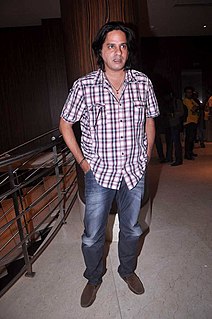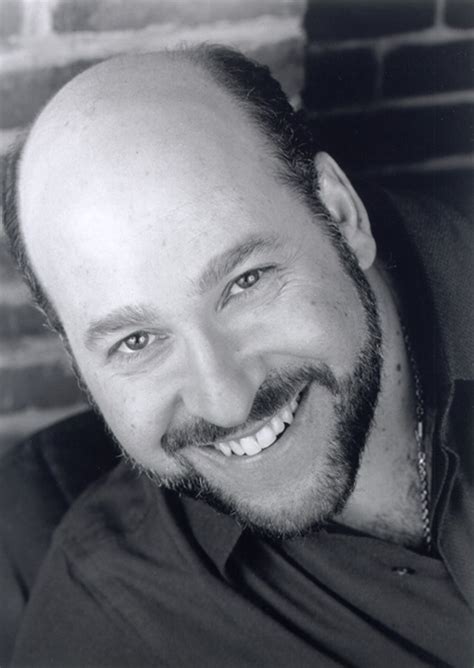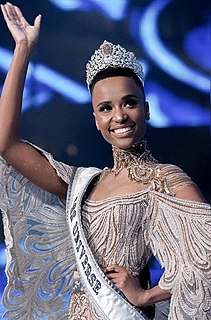A Quote by Patti Smith
As an artist, I never wanted to be fettered by gender nor recognized or defined as a female poet, musician or singer. They don't do that with men - nobody says Picasso, the male artist. Curators call me up and say, "We want your work to be in a show about women artists," and I'm like, why? For Christ's sake, do we have to attach a gender onto everything?
Related Quotes
They wanted black women to conform to the gender norms set by white society. They wanted to be recognized as 'men,' as patriarchs, by other men, including white men. Yet they could not assume this position if black women were not willing to conform to prevailing sexist gender norms. Many black women who has endured white-supremacist patriarchal domination during slavery did not want to be dominated by black men after manumission.
I am a men's liberationist (or "masculist") when men's liberation is defined as equal opportunity and equal responsibility for both sexes. I am a feminist when feminism favors equal opportunities and responsibilities for both sexes. I oppose both movements when either says our sex is THE oppressed sex, therefore, "we deserve rights." That's not gender liberation but gender entitlement. Ultimately, I am in favor of neither a women's movement nor a men's movement but a gender transition movement.
I never wanted to be that fad type of artist. When I looked up to artists, watching TV, I wanted to see somebody. I wanted to touch that person. I wanted to sound like them. I wanted to move like them. That' s what I want my fans to do. So that's why, everything that I do, the music I make, how I dress, it's all based off my lifestyle.
For the record, this isn’t a male/female thing. It’s a people thing. You talk about men being cold...you should see women from my standpoint. We’re talking the Arctic tundra would be warmer. Believe me, you don’t want to know my vantage point on your gender. As a man, if I grabbed your breasts, I’d be arrested. Any idea how many women have felt free to grab my crotch at will? (Acheron)
When I was setting out to be an artist, I said: If I can just produce one work that some people think is good, if I can become an obscure cult artist, that's all I want. Well, I attained that. I'm an obscure cult artist, and I think now, Why didn't I say I want to be another Picasso or something? What other options were open to me? But I was convinced I couldn't achieve great things because I don't have a steady-state mind.
I've been exploring gender performativity in the Gulf since I was a teenager. I'm not a gender anthropologist, but I feel like there's an extreme binary between femininity and masculinity in the Gulf. From a young age, I knew I didn't want to be part of it. Gender is a huge gray area, and the problem with defined roles is that they cover up undefined ones.
I have a general feeling that writers and artists who are in this peculiar situation, of being a persecuted artist, all anyone ever asks about is the persecution. It may well be that's the last thing in the world they want to talk about. There were many years in which every journalist in the world wanted to talk to me, but nobody wanted to talk to me about my work. That felt deeply frustrating because I felt there was an attempt to stifle me as an artist. The best revenge I could have was to write.
Radical feminist theorists do not seek to make gender a bit more flexible, but to eliminate it. They are gender abolitionists, and understand gender to provide the framework and rationale for male dominance. In the radical feminist approach, masculinity is the behaviour of the male ruling class and femininity is the behaviour of the subordinate class of women. Thus gender can have no place in the egalitarian future that feminism aims to create.
The visual world has blown up, the world of writing has blown up; there's so much text online. Anyone and everyone can express themselves. It's a lot to think about as an artist. Also, that the persona of the artist might actually be of some importance. When I came of age, it was important to be quiet and hang back and be mysterious. I knew artists who didn't even want to show up at their own openings. They never wanted to have their picture taken, didn't want to autograph a book, didn't want to answer a question. I came of age in a world where it was "Let the work speak for itself."



































